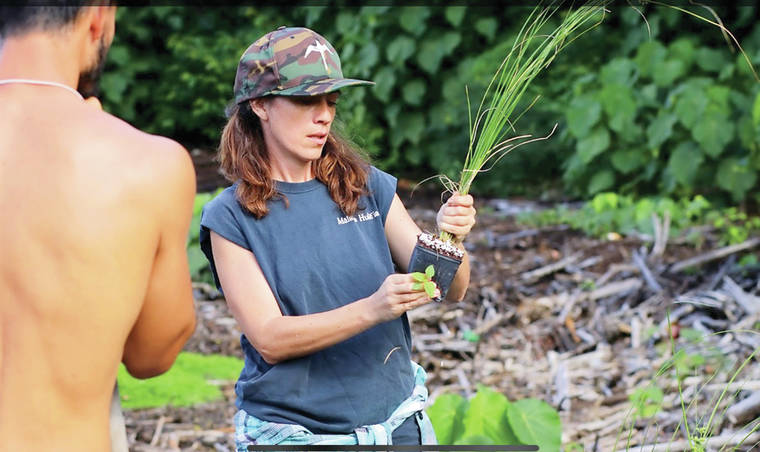LIHU‘E — Since the start of the COVID-19 pandemic, Megan Fox said she anticipated members of the labor force would feel the pandemic’s economic ripple effect.
The agriculture and tourism industries were two of the hardest hit and are prominent local industries that have a significant economic impact on Kaua‘i’s economy.
In March, several members in both areas experienced furloughs and layoffs.
Fox, the executive director of Malama Kaua’i, a non-profit organization that is focusing on advocating, educating and driving action towards a sustainable Kaua’i, took a proactive approach to help local members of the workforce.
Malama Kaua’i, which received $300,000 worth of approved Coronavirus Aid, Relief and Economic Security (CARES) Act funding from the county of Kaua‘i, is launching a new Aloha ‘Aina program designed to train displaced workers or workers who have had their hours reduced and give them opportunities to learn new trades. The effort will help workers explore career transitions into the food systems and conservation fields.
The model for the program is similar to the Malama Kaua’i internship program that began in 2014 but is tailored to meet the needs of adults and various host sites.
This county-funded Rise to Work program will be a 12-week career experience that offers $20 an hour at either full-time or half-time status with options for health insurance.
Participants will receive professional training on making a career change and resume writing, including a personalized one-on-one resume writing session from various host companies.
During the temporary employment, each host site has a small stipend to spend on worker PPE, specialized tools/supplies and professional development training.
The job openings will be posted for applications and interviews conducted from August 7-21. Those selected for the program will begin work on August 31 with various host sites.
“The need in our community for meaningful opportunities to get back to work is only growing,” Fox said. “We hope that we can continue to secure funding to support these pivots and transitions for both employers and job seekers while keeping all of the funding here on Kaua‘i.”
Sara Bowen, executive director of the Malama Huleia, which is a 501(c)3 non-profit organization devoted to eliminating the invasive species of red mangrove from the Huleai River, lost an estimated amount of over 1,000 volunteer staff hours during the county’s shut down of the economy.
The organization, labeled a hosting company to Malama Kaua’i, hopes to allow local people to expand their skillset and learn a new career path.
“I think this is the career path some people will find very satisfying,” Brown said. “We must continue to work towards a sustainable economy, and that will be very important. I am excited about the potential to grow and get more people into the workforce.”
They are currently planning to hire three to nine workers and hope to get additional funding to expand the program’s outreach.
“I am excited about the potential to grow and get more out of the workforce available and ready to work if we get long-term funding,” Bowen said. “I hope there is another round of stimulus available for unique organizations like ourselves to make that funding go along.”
Kaina Makua, the program director-founder for Kumano I Ke Ala, another 501(c)3 non-profit organization located on Kaua‘i in the ‘ili of Kakalae, and owner of Aloha Aina Poi Co, emphasizes the importance of the island being able to self sustain.
With natural disasters and now a world-wide pandemic, cultivating local industries has become more critical.
“A lot of people, through no one fault of their own, use the word “sustainability” as a facade and they are either halfway in or halfway out,” Makua said.
Kumano I Ke Ala will teach them important agricultural skills such as timing of planting to help rebuild an agriculture industry on Kaua‘i that has undergone significant changes.
“For me, it is just one-sided, and applying the word sustainability is only a deep understanding, not just on how food can sustain us, but money needs and sustainability go hand and hand,” Makua said. “In this day and age, we live without either of them, and it is tough to maintain.”
•••
Jason Blasco, sports reporter, can be reached at 245-0437 or jblasco@thegardenisland.com.


